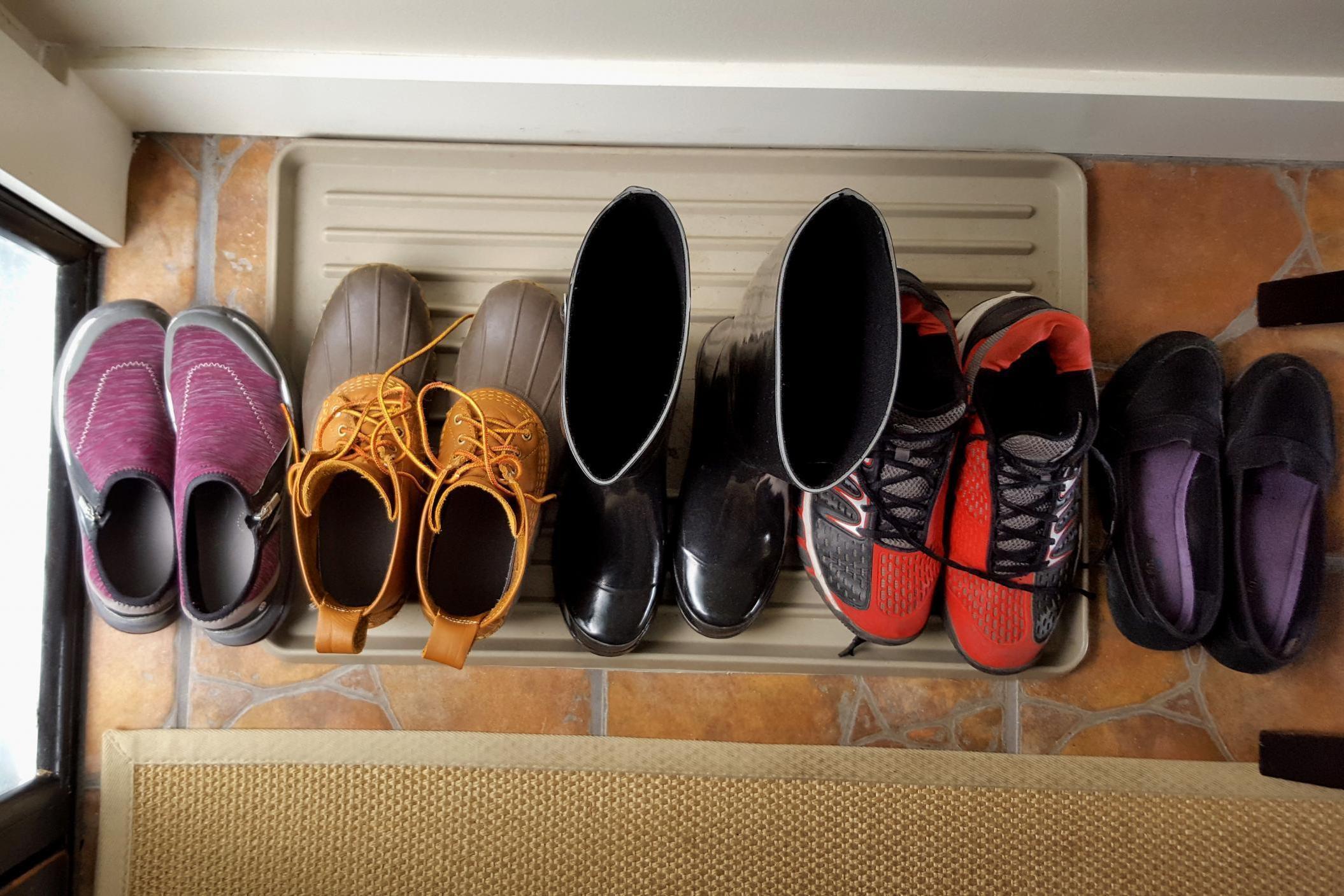Coronavirus: Can virus spread on soles of your shoes?
To prevent spread of virus, experts recommend hand washing and minimising contact with others

Your support helps us to tell the story
From reproductive rights to climate change to Big Tech, The Independent is on the ground when the story is developing. Whether it's investigating the financials of Elon Musk's pro-Trump PAC or producing our latest documentary, 'The A Word', which shines a light on the American women fighting for reproductive rights, we know how important it is to parse out the facts from the messaging.
At such a critical moment in US history, we need reporters on the ground. Your donation allows us to keep sending journalists to speak to both sides of the story.
The Independent is trusted by Americans across the entire political spectrum. And unlike many other quality news outlets, we choose not to lock Americans out of our reporting and analysis with paywalls. We believe quality journalism should be available to everyone, paid for by those who can afford it.
Your support makes all the difference.While numerous doctors and scientists are currently studying coronavirus in an effort to learn more about the pandemic, there are still many unknowns about how the disease spreads.
For example, we know that we should rigorously wash our hands and avoid touching our mouth, nose and eyes in an effort to limit the spread of germs, but should we also be doing the same for any clothes worn outside or our shoes?
According to experts, the risk of spreading coronavirus from clothing or shoes for most people is thought to be minimal.
This is what you need to know about clothing, shoes and coronavirus.
Do you need to wash your clothes when you come inside and can coronavirus live on the bottom of your shoes?
According to Dr Michael Gardam, an infectious disease physician and chief of staff at Toronto’s Humber River Hospital, who spoke to Global News, most people do not need to be concerned about washing their clothing or shoes immediately after coming inside, however, he cannot say for sure that there is no risk of contamination.
“I don’t think the clothing you’re walking around with on a regular basis is going to be a big cause of concern,” Gardam said. “That being said, I can’t absolutely prove that [people] could never get infected through contaminated clothing.”
For those that are concerned, Gardam says there is nothing wrong with washing your clothes for peace of mind.
Public health specialist Carol Winner reiterated the belief that there is minimal risk of getting coronavirus from your shoes to HuffingtonPost, explaining that: “There is no evidence to say that the coronavirus comes into the house from shoes.”
According to Winner, shoes may be one of the least likely ways of contracting the virus because “pragmatically, they are on the body part furthest from our face, and we do know that the greatest risk of transmission is person to person, not shoe to person”.
However, for those working in high-risk environments, such as healthcare workers, it is advisable to wash your clothes immediately upon arriving home.
Does the type of shoe matter?
While it is thought that it is unlikely you can get coronavirus from the bottom of your shoes, experts do acknowledge that the virus can live on certain materials for a few days at a time.
“We’ve learned from the National Institute of Allergy and Infectious Diseases that coronavirus can remain active on some surfaces, like plastic, for up to two to three days,” Winner told the outlet. “This suggests that viruses deposited on shoes made of plastic could retain the active virus for a few days.”
According to the study, the virus is viable on stainless steel for up to three days as well, and up to one day on cardboard.
What can you do to keep your shoes from spreading germs in your home?
One suggestion, which is often used by medical professionals, is to use a pair of shoes solely for work, that are then changed out of before entering the house.
To help doctors, nurses and other health care workers keep germs from spreading, Crocs announced this week that it would be giving away its footwear for free so that these individuals would have an easier time switching between shoes.
"Over the past week, we have spoken to healthcare workers, their facilities and even their family and friends, and they have specifically asked for our shoes in an effort to provide ease on their feet, as well as ease of mind as they need the ability to easily clean up before they go home to their families," Crocs president and CEO Andrew Rees in a statement.
Wiping your shoes with an alcoholic wipe can also help kill germs.
Join our commenting forum
Join thought-provoking conversations, follow other Independent readers and see their replies
0Comments